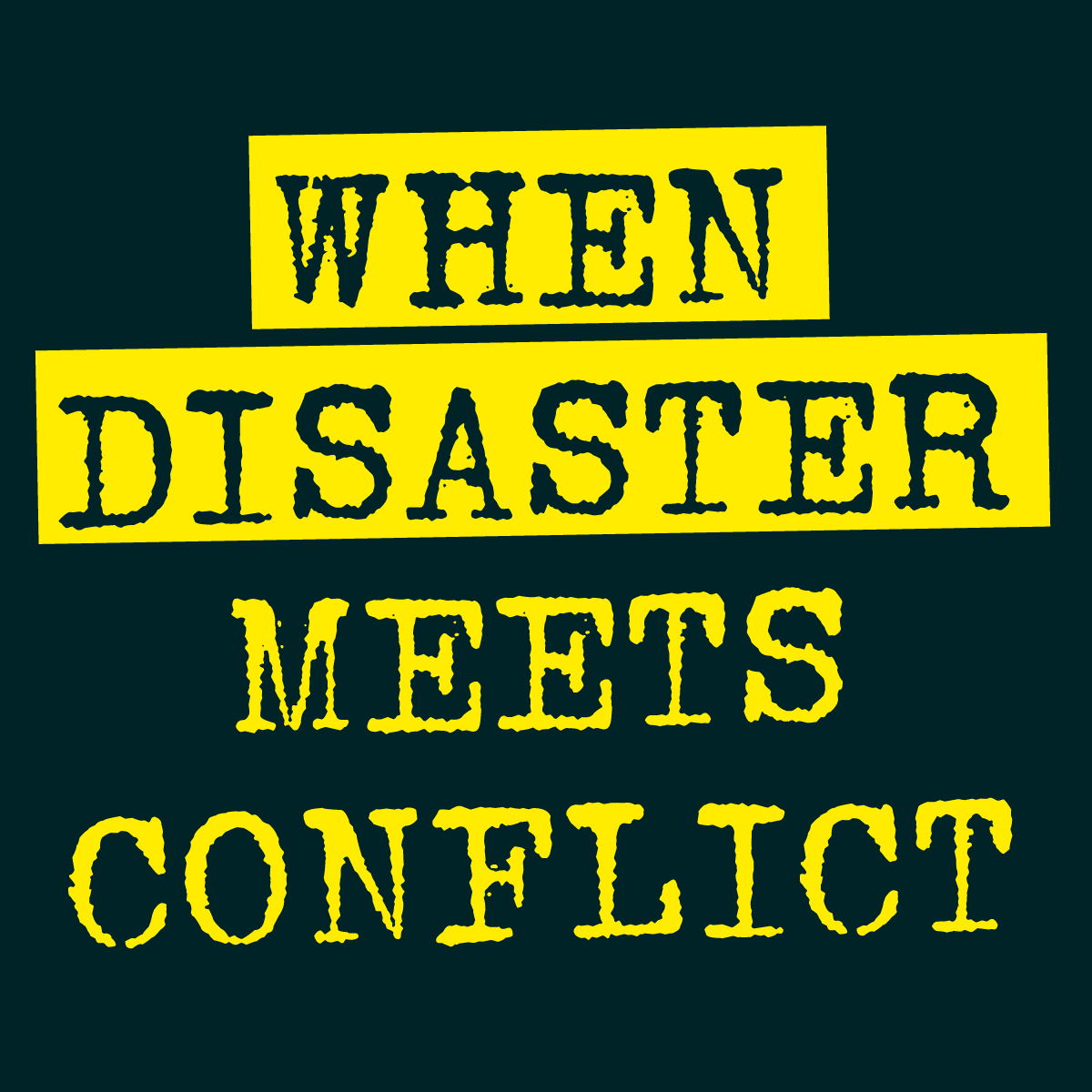Fundraiser
A Career as a Fundraiser: Driving Impact Through Philanthropy
Fundraising is the essential practice of gathering voluntary contributions of money or other resources, by requesting donations from individuals, businesses, charitable foundations, or governmental agencies. Fundraisers are the professionals dedicated to this vital work, serving as the crucial link between an organization's mission and the supporters who make that mission possible. They operate across a wide spectrum of sectors, playing a key role in sustaining and growing organizations that rely on philanthropic support.
Working as a fundraiser can be deeply rewarding. You'll often be directly involved in advancing causes you care about, whether that's supporting medical research, promoting arts and culture, advancing education, protecting the environment, or aiding political campaigns. The role demands creativity in developing compelling appeals, strategic thinking in identifying and cultivating potential donors, and strong interpersonal skills to build lasting relationships. It's a dynamic field where success translates directly into tangible impact for the organizations served.
What Does a Fundraiser Do?
Fundraisers champion the causes of organizations by securing the financial resources needed to operate and achieve their goals. They work within various settings, including nonprofit organizations, educational institutions like universities and schools, healthcare systems, arts and cultural institutions, and political campaigns. Their work ensures these entities can deliver services, conduct research, advocate for change, and ultimately fulfill their missions.
The sustainability and growth of many organizations hinge directly on the effectiveness of their fundraising efforts. Fundraisers develop and implement strategies to attract and retain donors, manage fundraising campaigns, and steward relationships with supporters. Their efforts provide the financial fuel that allows organizations not only to survive but also to expand their reach and deepen their impact over time.
Core Duties and Daily Activities
The day-to-day life of a fundraiser involves a diverse range of activities focused on securing financial support. A central task is donor cultivation, which means identifying potential donors, building relationships with them, understanding their philanthropic interests, and connecting those interests with the organization's needs. This often involves research, personalized communication, and face-to-face meetings.
Grant writing is another significant responsibility for many fundraisers, especially those working for nonprofits that rely on foundation or government funding. This involves researching grant opportunities, writing persuasive proposals that align with funders' guidelines, managing grant reporting requirements, and building relationships with grant-making organizations.
Event planning is also a common component of the role. Fundraisers often organize events ranging from large galas and benefit concerts to smaller cultivation events and donor recognition gatherings. These events serve both to raise funds directly and to engage current and potential supporters, building community around the organization's cause.
These courses provide insight into specific aspects of fundraising, such as securing capital and planning successful events.
Fundraising Specializations
Within the broad field of fundraising, professionals often specialize. Major gifts officers focus on securing large donations, typically from high-net-worth individuals. This requires sophisticated relationship-building skills, patience, and the ability to articulate a compelling case for significant investment in the organization's mission.
Annual fund managers oversee campaigns designed to secure smaller, recurring gifts from a broad base of donors. This often involves direct mail, email marketing, phonathons, and online giving campaigns. Corporate partnerships specialists work to build relationships with businesses, securing sponsorships, corporate grants, and employee giving programs.
Other specializations include planned giving (securing gifts made through wills or estates), foundation relations (managing relationships with grant-making foundations), and digital fundraising (leveraging online tools and social media for donations). The specific specialization often depends on the size and needs of the organization.
This course focuses specifically on selling sponsorships, a key skill in corporate partnerships and event fundraising.
Collaboration Across Departments
Fundraising rarely happens in isolation. Successful fundraisers work closely with other departments, particularly marketing and communications teams. This collaboration ensures that fundraising appeals are aligned with the organization's overall messaging and branding.
Marketing teams can provide expertise in crafting compelling narratives, designing visually appealing materials, and reaching target audiences through various channels. Communications teams help manage the organization's reputation, share stories of impact, and ensure consistent messaging across all platforms, which is vital for building donor trust.
Fundraisers also collaborate with program staff to understand the specific needs and impact of the organization's work, enabling them to articulate the case for support authentically. They may also work with finance teams on budgeting and reporting, and with leadership or board members on high-level strategy and donor engagement.
Essential Skills for Successful Fundraisers
Success in fundraising hinges on a blend of interpersonal abilities, technical know-how, and strong ethical judgment. While specific requirements vary by role and specialization, certain core competencies are consistently valuable across the profession.
Interpersonal and Communication Skills
At its core, fundraising is about building relationships. Excellent interpersonal skills are paramount. This includes the ability to connect genuinely with people from diverse backgrounds, build rapport quickly, and maintain long-term connections based on trust and mutual respect.
Active listening is critical for understanding donors' motivations, interests, and concerns. Strong verbal and written communication skills are needed to articulate the organization's mission compellingly, make persuasive asks, and express gratitude effectively. Public speaking and presentation skills are also often necessary, whether addressing a large audience or meeting one-on-one with a major donor.
These courses cover essential communication and persuasion techniques applicable to fundraising.
Understanding emotional intelligence can significantly enhance relationship building and negotiation effectiveness.
Technical Proficiency and Data Analysis
Modern fundraising relies heavily on technology. Proficiency with Customer Relationship Management (CRM) platforms is often essential for managing donor data, tracking interactions, and segmenting communications. Familiarity with specific platforms like Salesforce or Raiser's Edge can be advantageous.
Data analysis skills are increasingly important for identifying potential donors, understanding giving patterns, measuring campaign effectiveness, and making data-driven decisions. This includes the ability to interpret reports, identify trends, and use data to refine fundraising strategies. Basic proficiency with tools like Microsoft Excel for budgeting and tracking is also typically required.
Knowledge of digital marketing tools, email marketing platforms, and social media analytics can also be beneficial, particularly for roles involving online fundraising or annual giving campaigns.
This course focuses specifically on email marketing for nonprofits.
Ethical Considerations and Decision-Making
Fundraising operates within a framework of ethical principles and legal regulations designed to protect donors and maintain public trust. Fundraisers must possess strong ethical judgment and a commitment to transparency and accountability. Key ethical considerations include respecting donor intent, ensuring donor privacy, accurately representing the organization's work, and avoiding conflicts of interest.
Understanding relevant regulations, such as tax laws governing charitable donations and data privacy rules, is crucial. Fundraisers often adhere to professional codes of ethics, such as those established by the Association of Fundraising Professionals (AFP).
Developing a strong ethical framework helps navigate complex situations and build enduring relationships based on integrity. Courses in nonprofit law and governance can provide a solid foundation in these areas.
These books delve into the principles and practices of nonprofit management and governance, which inherently involve ethical considerations.
Educational Pathways to Becoming a Fundraiser
While there isn't one single required path, certain educational backgrounds and credentials can provide a strong foundation for a career in fundraising. Both formal degrees and specialized certifications can enhance qualifications and career prospects.
Relevant Academic Degrees
A bachelor's degree is often the minimum educational requirement for entry-level fundraising positions. While degrees in many fields can be relevant, majors in Communications, Marketing, Public Relations, English, or Business can provide valuable skills in writing, persuasion, and relationship building.
Degrees specifically focused on Nonprofit Management or Public Administration are also highly relevant, offering coursework directly related to the sector's unique challenges and opportunities. These programs often cover topics like nonprofit finance, governance, program evaluation, and fundraising principles.
For those seeking advanced roles or leadership positions, a master's degree in Nonprofit Management, Public Administration (MPA), Business Administration (MBA) with a nonprofit focus, or a related field can be beneficial. Some universities also offer graduate certificates specifically in fundraising or philanthropy.
This course provides an introduction to the legal aspects governing nonprofits, a crucial area for fundraisers.
Professional Certifications
Beyond formal degrees, professional certifications can demonstrate specialized knowledge and commitment to the field. The most recognized credential is the Certified Fund Raising Executive (CFRE). Earning the CFRE requires documented professional practice experience, education, demonstrated fundraising performance, and passing a comprehensive exam covering key fundraising domains. You can learn more at the CFRE International website.
The Association of Fundraising Professionals (AFP) offers various educational programs and resources, although it doesn't issue a primary certification like the CFRE. Membership in professional organizations like AFP provides access to networking opportunities, continuing education, and ethical guidelines, which are valuable for career development. AFP chapters often exist at the local level, offering regional support and programming.
Other specialized certifications might exist for specific areas like grant writing or planned giving, offered by various organizations or educational institutions.
This book provides a comprehensive overview of nonprofit law, relevant for understanding the regulatory landscape.
Alternative Learning and Skill Development
Formal education isn't the only route into fundraising. Many successful professionals build their skills and enter the field through alternative pathways, combining hands-on experience with targeted learning, often leveraging online resources.
For those exploring fundraising or looking to transition from another career, embracing alternative learning can be an effective and accessible way to gain relevant competencies and demonstrate commitment to the field.
Gaining Hands-On Experience
Practical experience is invaluable in fundraising. Volunteering for a nonprofit organization in a fundraising capacity is an excellent way to learn the ropes, build a network, and gain tangible skills. Assisting with events, helping write grant sections, making thank-you calls to donors, or supporting a specific campaign can provide real-world insights.
Internships, either paid or unpaid, offer more structured learning experiences within fundraising departments. Serving on a nonprofit board committee, particularly a development or fundraising committee, can also provide high-level exposure to fundraising strategy and governance.
These experiences not only build skills but also demonstrate initiative and passion for the sector, which hiring managers value highly.
This course explores service learning, a concept related to community engagement and potential volunteer opportunities.
Online Courses and Micro-credentials
Online learning platforms offer a wealth of resources for developing specific fundraising skills. You can find courses on grant writing, event management, donor relations, digital fundraising tools, crowdfunding strategies, and nonprofit marketing. These can be particularly helpful for career changers needing to fill specific skill gaps or for current professionals looking to specialize.
Micro-credentials or certificates obtained through online courses can be added to your resume or LinkedIn profile to showcase newly acquired skills. OpenCourser makes it easy to search thousands of courses from various providers, allowing you to compare options and find programs that fit your learning goals and budget. Use the "Save to List" feature to curate your own learning path.
These courses focus on leveraging specific digital platforms and techniques for fundraising.
This book provides insights into the world of crowdfunding.
Building a Portfolio
Demonstrating your skills is crucial, especially when lacking formal experience. Creating a portfolio showcasing your fundraising-related work can be highly effective. This might include examples of grant proposals you've written (even if mock or for volunteer projects), sample appeal letters, event plans, or analyses of potential donor segments.
Consider developing a mock fundraising campaign for a cause you care about. Outline the strategy, target audience, communication plan, budget, and evaluation metrics. This demonstrates strategic thinking and practical application of fundraising principles.
Highlighting successful volunteer fundraising efforts, including amounts raised or specific contributions made (like securing an in-kind donation or recruiting new volunteers), can also serve as powerful evidence of your capabilities.
Career Progression in Fundraising
Fundraising offers diverse career paths with opportunities for growth and specialization. Advancement typically comes with increased responsibility, strategic input, and management duties. Understanding the typical trajectory can help aspiring and current fundraisers plan their careers.
Entry-Level Roles
Common entry points into the fundraising field include roles like Development Assistant, Fundraising Coordinator, or Development Associate. These positions often involve administrative support, database management, assisting with events, processing donations, and supporting senior fundraisers.
Another entry path is through specialized roles like Grant Writer or Annual Fund Coordinator. A Grant Writer focuses specifically on researching and writing grant proposals, while an Annual Fund Coordinator might manage direct mail campaigns, email appeals, and lower-level donor stewardship.
These roles provide foundational experience in fundraising operations, donor communication, and database management, preparing individuals for more senior positions.
Mid-Career Advancement
With experience, fundraisers can move into roles with greater responsibility and strategic focus. A Director of Development or Development Manager typically oversees multiple fundraising streams (annual fund, major gifts, grants, events) and may manage a small team. They are often responsible for developing and implementing the organization's overall fundraising plan.
Specialized mid-career roles include Major Gifts Officer, focused on cultivating and soliciting large individual donations, or Corporate Relations Manager, focused on securing business support. These roles require strong relationship-building skills and strategic thinking.
These courses can help develop the communication and presence needed for mid-career and leadership roles.
Executive Leadership Opportunities
Seasoned fundraising professionals can advance to executive leadership positions. The Chief Development Officer (CDO) or Vice President of Advancement typically oversees the entire fundraising operation, sets long-term strategy, manages a larger team, works closely with the CEO and board, and plays a key role in securing transformational gifts.
These executive roles require extensive experience, proven leadership abilities, deep understanding of philanthropic trends, and strong strategic planning skills. They are responsible for ensuring the organization's financial health and capacity for growth through philanthropy.
Some fundraisers may also transition into related leadership roles, such as Executive Director or CEO of a nonprofit organization, leveraging their understanding of resource development and stakeholder management.
These courses touch upon leadership development and organizational understanding relevant for executive roles.
Ethical Challenges in Modern Fundraising
While rewarding, fundraising also presents unique ethical challenges. Navigating these issues with integrity is crucial for maintaining donor trust, protecting the organization's reputation, and upholding the principles of the profession.
Balancing Donor Influence and Mission Integrity
A significant ethical consideration involves managing the influence of donors, particularly major contributors. While cultivating strong relationships is key, fundraisers must ensure that donor interests do not compromise the organization's mission, values, or programmatic independence. Accepting gifts with restrictive conditions that conflict with the mission can create serious problems.
Transparency about how funds are used and clear policies regarding gift acceptance are essential. Fundraisers must be prepared to decline gifts that are not aligned with the organization's purpose or ethical standards, even when significant amounts are involved.
Maintaining this balance requires strong ethical grounding, clear communication with leadership and donors, and a commitment to prioritizing the organization's mission above all else.
These books explore related concepts like community focus and ethical action.
Donor Data Privacy and Security
Fundraisers collect and manage sensitive personal information about donors. Protecting this data is a critical ethical and legal responsibility. This includes safeguarding donor databases from breaches, ensuring compliance with privacy regulations like the General Data Protection Regulation (GDPR) for donors in Europe, and respecting donors' preferences regarding communication and data sharing.
Ethical practices involve being transparent with donors about how their information is collected, used, and stored. Fundraisers must ensure secure data handling procedures are in place and that staff are trained on privacy protocols. Breaches of trust in this area can severely damage donor relationships and the organization's reputation.
Understanding and adhering to evolving data privacy laws is an ongoing requirement for fundraising professionals.
Regulatory Compliance and Transparency
Nonprofit organizations and fundraising activities are subject to various regulations at the federal, state, and local levels. Compliance involves accurate financial reporting, adherence to tax laws governing charitable contributions, and meeting state registration requirements for soliciting donations.
Transparency is a cornerstone of ethical fundraising. This includes providing clear information about the organization's finances, programs, and impact. Publicly available documents like the IRS Form 990 (for US-based nonprofits, accessible via sites like GuideStar) provide financial transparency, and fundraisers should be prepared to discuss this information with donors.
Ensuring compliance and maintaining transparency builds public trust and demonstrates accountability, which are essential for long-term fundraising success.
This course and book offer foundational knowledge in nonprofit legal and governance structures, encompassing compliance issues.
Fundraising in the Digital Age
Technology has profoundly reshaped the fundraising landscape. Digital tools and platforms offer new ways to reach donors, streamline processes, and analyze results, requiring fundraisers to adapt and develop new skills.
The Rise of Online Giving and Crowdfunding
Online giving platforms, social media fundraising tools, and dedicated crowdfunding sites have made it easier for individuals to donate and for organizations to launch targeted campaigns. Fundraisers increasingly leverage these tools for annual appeals, emergency relief efforts, peer-to-peer fundraising, and specific project funding.
Effectively using these platforms requires skills in digital marketing, social media engagement, compelling online storytelling, and understanding platform-specific best practices. Crowdfunding, in particular, allows organizations to mobilize broad community support for specific initiatives.
These courses offer practical guidance on creating and managing online fundraising campaigns using specific platforms or techniques.
This book offers insights into the broader context of crowdfunding.
Data Analytics and AI in Fundraising
Data analytics plays a growing role in optimizing fundraising efforts. By analyzing donor data, organizations can identify patterns, predict likelihood to give, segment audiences for targeted appeals, and personalize communications. This data-driven approach helps allocate resources more effectively and improve campaign ROI.
Artificial Intelligence (AI) tools are emerging to further enhance these capabilities. AI can assist with tasks like prospect research (identifying potential major donors), predicting giving capacity, automating personalized outreach, and analyzing large datasets to uncover insights that might be missed by human analysts.
Fundraisers increasingly need data literacy and comfort working with analytical tools to leverage these technologies effectively. While AI won't replace the human element of relationship building, it can significantly augment a fundraiser's ability to work smarter and more efficiently.
This course explores using AI for persuasion, a related application.
Emerging Technologies: Cryptocurrency and Blockchain
New technologies continue to influence philanthropy. Some organizations have begun accepting donations in the form of cryptocurrency, opening up a new avenue for support, particularly from tech-savvy donors. Navigating the volatility and regulatory landscape of crypto requires specialized knowledge.
Blockchain technology offers potential applications in enhancing transparency and traceability in charitable giving. While still nascent in the nonprofit sector, its ability to create secure, immutable records could eventually impact how donations are tracked and reported, potentially increasing donor confidence.
Staying informed about these emerging technologies and their potential applications allows fundraisers to anticipate future trends and explore innovative ways to engage donors and manage resources.
Global Perspectives on Fundraising
Fundraising practices and philanthropic traditions vary significantly around the world. Understanding these nuances is essential for professionals working in international organizations or engaging with donors from different cultural backgrounds.
Cultural Variations in Philanthropy
Cultural norms, religious beliefs, historical contexts, and economic conditions shape how philanthropy is viewed and practiced in different societies. Motivations for giving, preferred methods of donating, expectations around recognition, and the role of family versus individual giving can vary widely.
For instance, in some cultures, anonymous giving is highly valued, while in others, public recognition is expected. Understanding these cultural sensitivities is crucial for building effective relationships with international donors and adapting fundraising strategies appropriately.
Effective cross-cultural communication and a willingness to learn about different philanthropic traditions are key skills for global fundraisers.
These courses touch upon global issues like refugee crises and humanitarian aid, contexts where international fundraising is vital.
Navigating International Regulations
Fundraising across borders involves navigating a complex web of legal and regulatory requirements. Different countries have varying laws regarding charitable solicitation, tax deductions for donations, data privacy, and financial reporting for nonprofits.
Organizations fundraising internationally must ensure compliance with the regulations in each country where they solicit donations. This may involve registering as a charity in multiple jurisdictions, understanding cross-border tax implications for donors, and adhering to different standards for transparency and accountability.
Seeking legal counsel with expertise in international nonprofit law is often necessary to navigate these complexities effectively.
International Development Funding
Fundraising for international development organizations often involves engaging with specific funding mechanisms and donor types. This can include seeking grants from government aid agencies (like USAID), multilateral institutions (like the World Bank or United Nations agencies), large international foundations, and corporate social responsibility programs.
Securing funding from these sources typically requires sophisticated grant writing skills, deep understanding of development issues, robust monitoring and evaluation frameworks, and the ability to build relationships with institutional funders.
Understanding the priorities and procedures of major international donors is critical for fundraisers working in the global development sector.
Frequently Asked Questions about a Fundraising Career
Choosing a career path involves many questions. Here are answers to some common queries about becoming and working as a fundraiser, drawing on industry insights and available data.
Can I transition from corporate sales to fundraising?
Yes, transitioning from corporate sales to fundraising is quite common and often successful. Many skills are transferable, including relationship building, communication, persuasion, meeting targets, and managing client/donor portfolios. Key differences include the motivation (mission-driven vs. profit-driven) and the nature of the "product" being intangible impact.
Highlighting transferable skills and demonstrating a genuine passion for the nonprofit sector are crucial for making the switch. Networking within the nonprofit community and potentially taking introductory courses in nonprofit management or fundraising can strengthen your candidacy.
These courses explore sales techniques, some of which can be adapted for fundraising contexts.
How does compensation compare to for-profit sectors?
Generally, compensation in the nonprofit sector, including fundraising roles, tends to be lower than in comparable positions in the for-profit sector. However, salaries can vary significantly based on the organization's size, location, budget, the specific role, and the individual's experience and qualifications.
According to the U.S. Bureau of Labor Statistics (BLS), the median annual wage for fundraisers was $61,890 in May 2023. Entry-level positions typically start lower, while senior leadership roles (like Chief Development Officer) in large organizations can command six-figure salaries. While potentially lower than corporate counterparts, many find the intrinsic rewards of mission-driven work compensate for the difference.
Factors like comprehensive benefits packages in some nonprofits can also influence the overall compensation picture.
Is fundraising recession-proof?
No career is entirely recession-proof, and fundraising is certainly impacted by economic downturns. During recessions, individual and corporate donors may reduce their giving due to financial uncertainty. Competition for limited grant funding can also intensify.
However, the need for nonprofit services often increases during economic hardship, making fundraising even more critical. Organizations may adapt their strategies, focusing more on donor retention, diversifying funding streams, and clearly articulating their impact. Skilled fundraisers who can navigate challenging economic times remain valuable assets.
While giving patterns fluctuate, philanthropy persists even in difficult times, making fundraising a relatively resilient field compared to some industries heavily tied to discretionary spending.
What's the typical career lifespan for a fundraiser?
There isn't a fixed "lifespan," and many fundraisers enjoy long and fulfilling careers in the field. Burnout can be a challenge due to pressure to meet financial goals, long hours (especially around events or deadlines), and the emotional labor involved in relationship building. However, the mission-driven nature of the work provides strong motivation for many.
Career longevity often depends on finding the right organizational fit, maintaining work-life balance, continuous learning, and celebrating successes. Many fundraisers progress through the ranks within one or multiple organizations, while others may transition into consulting, nonprofit leadership, or related fields like marketing or program management.
How important is personal networking?
Personal networking is extremely important in fundraising. Building relationships is central to the job, not only with donors but also with peers, mentors, board members, community leaders, and potential collaborators. A strong professional network can lead to new donor prospects, partnership opportunities, career advancement, and valuable advice.
Attending industry conferences (like those hosted by AFP), joining local professional chapters, participating in community events, and leveraging online platforms like LinkedIn are effective ways to build and maintain a network. Networking isn't just about finding the next job; it's about building the connections that fuel successful fundraising.
This course offers strategies for generating leads via LinkedIn, a key networking platform.
Are there remote work opportunities in fundraising?
Yes, remote and hybrid work opportunities have become more common in fundraising, mirroring trends across many professions. Tasks like grant writing, data management, donor research, email marketing, and some donor communications can often be done remotely. Technology enables virtual meetings and online fundraising campaigns.
However, roles involving significant face-to-face interaction, such as major gifts cultivation or event management, may require more in-person presence. The availability of remote work often depends on the specific role, the organization's culture and policies, and geographic considerations for donor engagement. Many organizations now offer hybrid arrangements, combining remote work with periodic office time or travel for donor visits.
Final Thoughts
A career in fundraising offers a unique opportunity to blend strategic thinking, relationship building, and communication skills to support causes that make a real difference in the world. It's a challenging yet deeply rewarding field that requires dedication, resilience, and a genuine passion for philanthropy. Whether you are just starting to explore career options or considering a transition, fundraising provides diverse pathways for growth and impact.
Continuous learning is key, and resources like online courses found through OpenCourser can help build foundational knowledge or specialized skills. Remember to check the Learner's Guide for tips on maximizing online education. While the path requires effort and commitment, the ability to contribute directly to meaningful change makes fundraising a compelling career choice for many ambitious and mission-driven individuals.






































